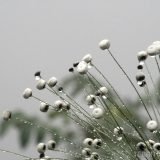[highlight]Leia em Português[/highlight]

Travelling to the 2005 Luanda was one of the most amazing experiences of my life. In that time, it was the world’s second worst capital regarding quality of life, losing to the capital of Iraq… a reflex of a country which had just gone out of a civil war that lasted 25 years!


It is cozy to travel around the former Portuguese colonies, listen to the variety of accents and the unique cultures and eating habits. It is impressive how Portuguese people built a country so big and full of so different tribes – and yet, everyone speaking the language, adopting the European lifestyle and following the Catholic religion. Now independent and in peace, Angola is growing like it has never done before, with taxes at 20% a year and having the Brazilians among the main partners in this process of reconstruction.
I am already used to seeing misery and slums, but it is the first time I come to a capital as big as Luanda full of “emergency villages”, and the most shocking site is the central area. Before the war, the city was considered one of the most beautiful one in Africa, people called it Copacabana. In 2005, a different scenario: loads of garbage, open sewage, buildings with bullet holes from machine guns and even abandoned war tanks. Most elevators in these buildings stopped working and became enormous garbage cans. The buildings have no internal light, and the stairs are the only way to go up – completely in the dark. Luanda is such a different place nowadays that all the postcards for sale have pictures from the 70s.
The era of Portuguese rule was marked by abuse to all Angolans and a lot of racial segregation, but the real problem was that after the independence, the Angolans started an inner war: one side influenced by the socialism of Cuba and the other by the capitalism of South Africa.

The result was a devastated country, with landmines all around. The capital flooded with immigrants from all over the place, who occupied the buildings previously abandoned by the Portuguese outlaws, and built sheds wherever possible. Nowadays the city has over four million inhabitants and is going through extreme renovation, reflecting the recovering of the entire country.

Needless to say that traveling is not easy. There are few hotels and all the supply is imported (including potable water). Electric energy has to be generated, many times, by private gas or diesel generator, what makes the fees extremely pricey. Luanda has the highest cost of living in the world.


All things considered, my partner and I accepted the invitation of a client to stay in his family inn. He was very friendly, our costs got lower and we could walk to the Fair where we were exposing our toilet seats (yes, I went to Africa to sell toilet seats). However… we did not exactly know what was expecting us. The place was a slum, far away from the city center. At the door, a body guard with a machine gun, where it was necessary to ask someone to turn on the generator to the water pump so we could use the toilet. Curious experience, I can say. Not to mention the manager of the inn, who was our driver and was always hours late to fetch us.


To make things more complicated, there was a Marburg epidemic while we were there. Marburg is a highly contagious virus, like Ebola, which was attacking one region of the country. It spreads easily and in every possible way, and so I gave up shaving. I was afraid of being contaminated by the water. I was not overreacting. The warnings were frightening. I was terrified with tips such as “put your beloved one inside a closed plastic bad, in a way that his/here feces and vomit are inside the bag”.
Besides that, landmines are also a serious matter. Prevention is part of the routine of those who drive around the country. These ten days in the Luanda of 2005 were tough. The first day of the Fair, for example, was enough to see that it was not possible to walk back to the inn after six p.m. We arrived at the inn thanks to the police, who gave us a ride in a suburban police, with one detail: in the middle of the way they arrested a thief (“aldrabão”) who was stealing a cell phone. It was “cool” to be there with the policemen, their machine guns and the handcuffed thief.

Anyway, Africa has a strong energy, despite the daily difficulties. The Angolans may confuse you, but they are warm-hearted people, very extroverted and they love Brazilians. The highlight was to chat with them and see how much they know about Brazil. Living in Rio de Janeiro is a dream of many, but strangely the most known beer was Quilmes, the Argentinean one.
For the tourist, we advise going to MUSSULO ISLAND, CAPE ISLAND, peninsula which is across from the bay where you can find the Panorama Hotel and several pubs. Walking in the city center, which today is reconstructed and visiting the new SOUTH LUANDA, where there is a HANDCRAFT FAIR that offers pieces made of ivory and ebony wood (wonderful, but environmentally incorrect) is also a nice idea.
I felt like knowing the countryside, but did not have the opportunity. It has beautiful views with forests and canyons, besides the desert on the border of Namibia, where you can find that tribe whose women wear eccentric necklaces to lengthen the necks. Maybe next time, which I believe to be soon…

Translated by Lúcia Maciel
Contact: luciamaciel@territorios.com.br
© All rights reserved. Pictures and report 100% originals.









